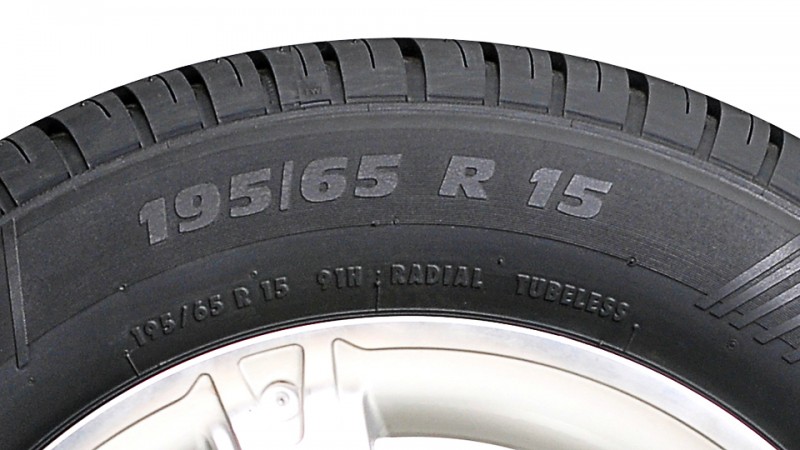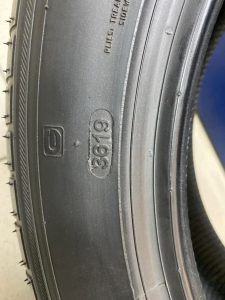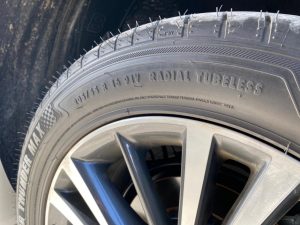This is How You Can ‘Read’ Your Car Tyre
Tyres are the base of every vehicle because a healthy car tyre ensures safety, security and comfort. So, choosing a right tyre is essential for you and your car. However, many of us don’t know which one is the best tyre for our vehicle, meaning we cannot ‘read’ the tyre. Every tyre has some numbers and figures on it, which gives complete detail about it, but as mentioned earlier-many of us don’t understand those numbers. Hence, we are here to help you read those numbers so that you can choose a proper and exact tyre for your car.
For this piece, we have selected BG Thunder Max by General Tyres, one of the most reliable tyres available in the market.
Manufacturing Date:
First and foremost, let us discuss the manufacturing time of the tyre because the older the tyre, the less safe it is. You can know it by four numbers engraved on the tyre, which tells about two things, i.e., the Week and Year it was manufactured in. This information is given with four digits, and in this case, it is “3619”. It means this specific tyre was manufactured in the 36th week of 2019, so it is around two years old, and it is in excellent condition to be used.
Width, Height and Size:
Knowing your tyre size is crucial for you to determine the best suitable replacement tyres for your vehicle. Going wider or thinner, longer or shorter, will affect things like fuel consumption of your car, handling and braking of your vehicle and speedometer accuracy. So, read and understand these sizes carefully before buying. For example, this tyre 205/55R16. Let us break these numbers step by step. The 205 shows the tyre’s width in millimetres, meaning it is 205mm wide. 55 is the height of the sidewall. The sidewall height is measured in percentage of the width of the tyre. Hence, you can say the sidewall of this tyre is 55% of 205mm. Whereas 16 is the diameter of the wheel itself, and R stands for Radial.
Load Capacity and Speed Rating:
Then comes the load capacity and speed rating of the tyre. In this case, it is 91V. Let us explain it step by step for your understanding. The number ’91’ shows the tyre’s load capacity, and in this case, it is up to 615 kilograms. Meanwhile, the ‘V’ talks about the tyre’s speed ratings and ‘V’ means this tyre can be driven up to 240 kilometres per hour.
We hope that this brief guide will help you in choosing a perfectly suitable tyre for your vehicle.
For further understanding of the speed rating, here is a detailed chart:
Complete Table of the Industry’s Speed Ratings:
L 75 mph 120 km/h (special off-road tires)
M 81 mph 130 km/h (temporary spare tires)
N 87 mph 140 km/h
P 93 mph 150 km/h
Q 99 mph 160 km/h (some winter tires with or without studs)
R 106 mph 170 km/h (stronger light-duty pickup tires)
S 112 mph 180 km/h (passenger tires)
T 118 mph 190 km/h (passenger tires)
U 124 mph 200 km/h (performance tires)
H 130 mph 210 km/h (performance tires)
V 149 mph 240 km/h (performance tires)
W 168 mph 270 km/h (ultra-high-performance tyres)
Y 186 mph 300 km/h (ultra-high-performance tires)
Z more than 149 mph or 240 km/h often accompanied by the letters W and Y.



